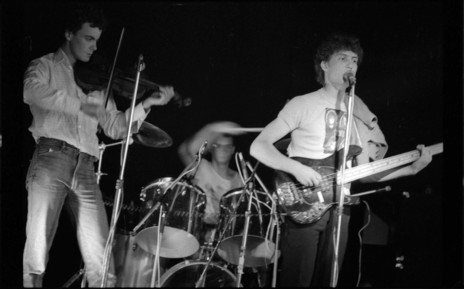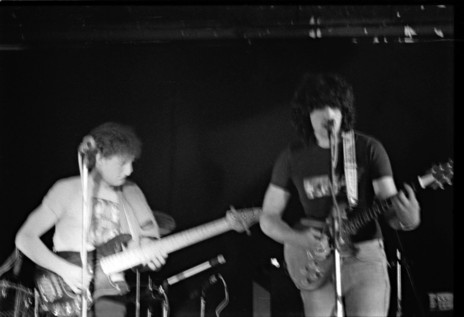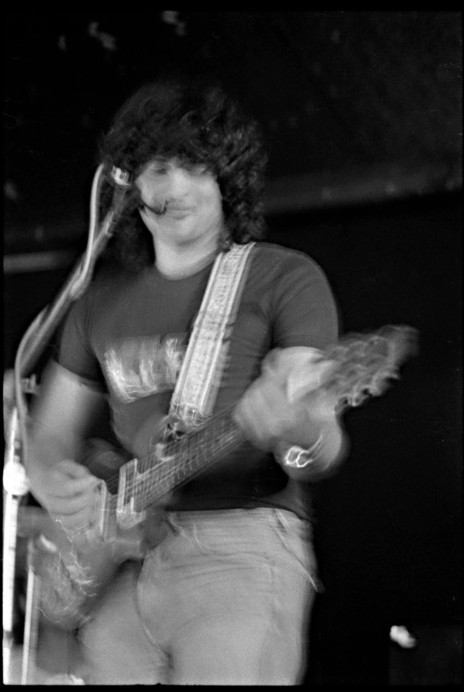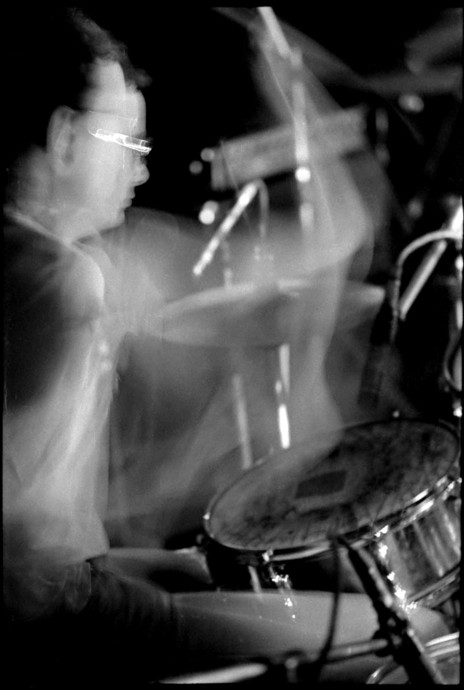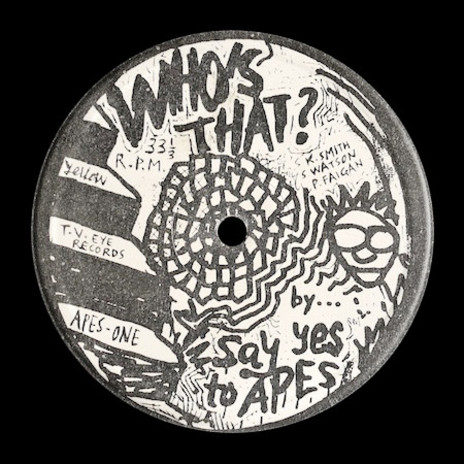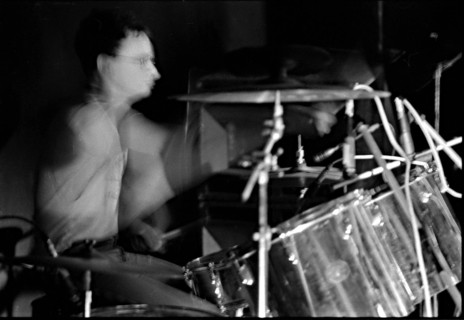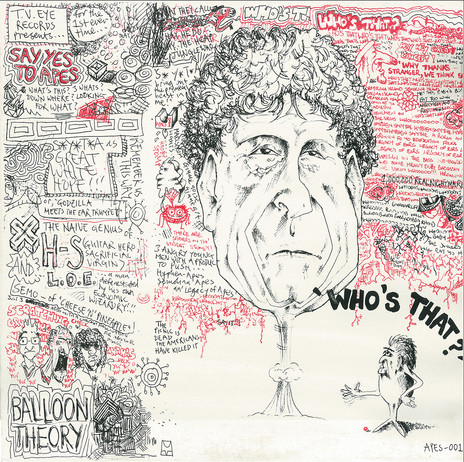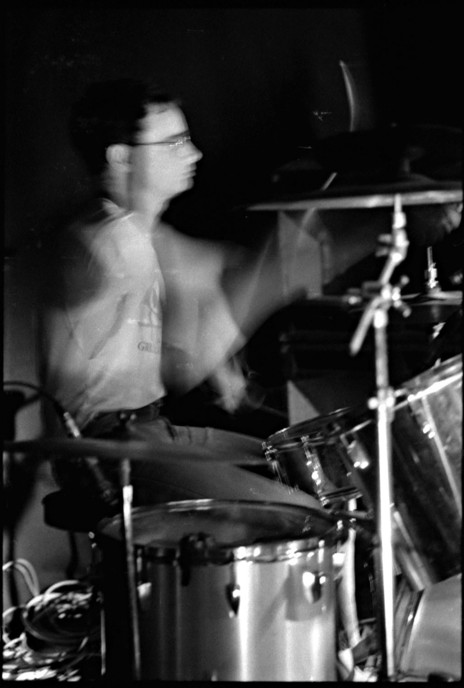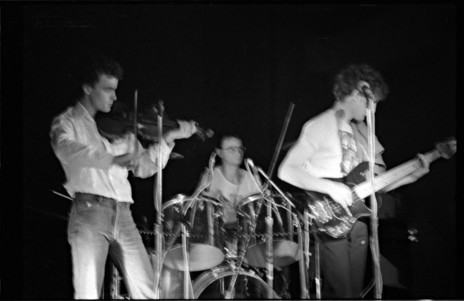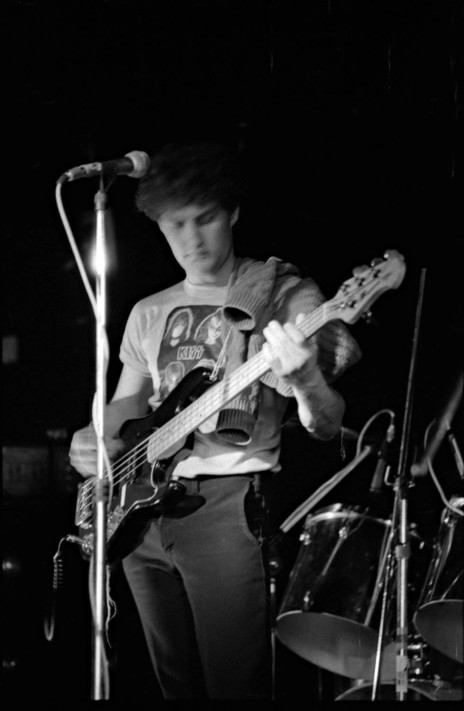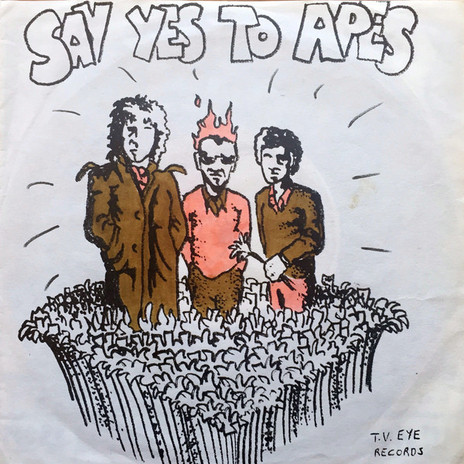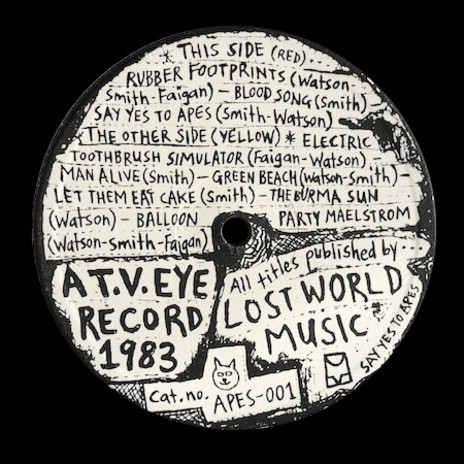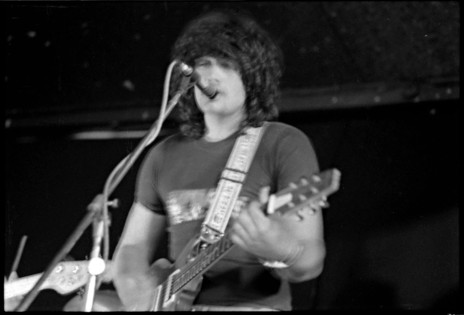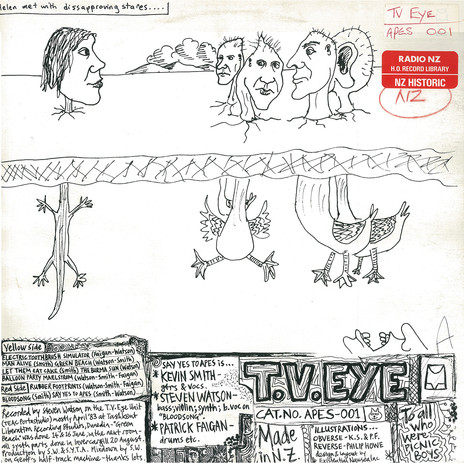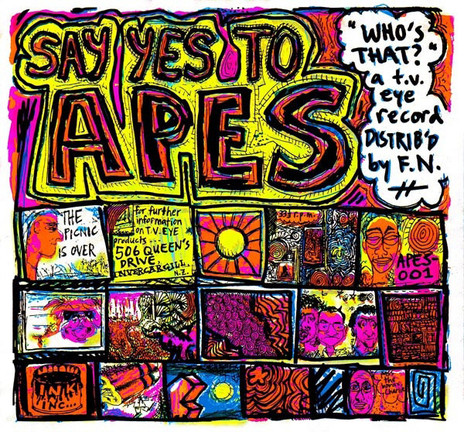Evolving from their previous Timaru-based incarnation The Picnic Boys, Say Yes To Apes formed in Dunedin in 1983 and released a string of albums and singles on the TV Eye label, the front for their prolific collective which exemplified the DIY post-punk ethic of the time, with hand-made cover art and self-referential in-jokes aplenty. The tracks themselves range from a good-natured beatnik shambles, through Velvet Underground influenced 60s pop, to Fall-esque poetic abstraction.
the influx of affordable
4-track cassette machines enabled musicians to capture new, weird sounds at home
Across New Zealand the influx of affordable TEAC/Tascam/Fostex 4-track cassette machines was enabling musicians to capture new, weird sounds in bedroom and living room environments, where lounge suite-baffled distance recording alternately obscured and revealed a high fidelity (that’s the Chris Knox definition, where higher-fidelity = greater truthfulness or honesty) document of creative life in the ‘burbs.
The lo-fi movement’s “learn as you go” multi-track experimentation often embodied the creative freedom and integrity promised by punk to a far greater degree than any skinhead or oi pub-rock ever could. Bands such as Say Yes To Apes inhabited a part of that territory so apart from any consideration of commercialism or cool that they surpassed these considerations entirely, constituting a kind of avant-garde, genre-defying baseline of first-impulse instrumentation and hit-the-record-button composition.
Duane Zarakov: “In 1983 myself, Smith and Watson decided to form a ‘new’ band and make a vinyl LP. That first Say Yes To Apes album [Who’s That (Fucknose)] was recorded in a dank bedroom in Castle Street. [Dunedin, credited as “Tashkent Liberation Studios”, on a TEAC Portastudio 144]. The concept was that we’d just record an album’s worth of stuff, and simply put out the first 40 minutes worth of whatever we recorded. Pretty stupid idea, really, but that’s what we did.”
Kevin Smith was the band’s vocalist. He was a rugby-playing half-Tongan who had married young. He was good-looking and confident, and came from a completely different demographic than that usually associated with weirdo arty bedsit combos from the deep south. The intensely abstract Patrick Faigan (aka Duane Zarakov) on drums and multi-talented Steve Watson on bass, synth, violin, guitar, piano and percussion made up the rest of the band, with Tim McLeod sometimes appearing on guitar and violin.
TV Eye initially released some Picnic Boys cassettes, then two Say Yes To Apes albums between 1982 and 1984, as well as Steve Watson, Kevin Smith and Patrick Faigan’s solo material under the names Legacy Of Ears, Hyphen-Smythe and Semolina Island respectively (Hyphen-Ears and The Hyphen-Ears were the names Watson and Smith used on their collaborations).
Duane Zarakov: “Kev and Steve had recorded Hyphen-Smythe’s first solo joint Bad Ass [pronounced “Bard Arse”] back in Dunedin in 1983 when I had the flu. I was lying in the next room, too sick to play with them. That album is a classic, and better, I think, than the actual Say Yes To Apes records.”
By 1984 the band had relocated to Christchurch and was gigging regularly at venues like The Gladstone, Star and Garter, and Zetland with contemporaries AXEMEN and Scorched Earth Policy. They recorded an album and single in a flat upstairs from Stones Fruit Shop and at University of Canterbury music school. The single was the ‘Knife’ 7-inch, and the album was The Decline And Fall Of Say Yes To Apes, of which Russell Brown had this to say in Rip It Up magazine: “No one could ever hope to copy SYTA – they are what they is. The approaches to the playing of their instruments and the very way in which songs emerge are their very own. They’ve got a wicked sense of humor but they’re not kidding around. I realise this record might annoy the shit out of some of you, but listen, you may love it. I think I do.”
‘The Immortal Say Yes To Apes’ album remains unreleased; Duane Zarakov says it is their best.
The band recorded a final album, The Immortal Say Yes To Apes, just before Zarakov left and they disbanded in 1986. This record has never been released, though Zarakov (who reckons this album is their best) mentions that the subject of getting it out there has come up from time to time over the years.
Smith and Watson kept making music for a while as The Hyphen-Ears until Smith decided to focus his attention on an acting career. Latterly, Watson has continued making music out of the public eye (he can be found on Bandcamp as The Four Donkeymen Of The Apocalypse). Duane/Patrick played in a couple of bands with Bill Vosburgh, as well as a freeform ensemble called The Elephant Tranquilisers before playing in The Axel Grinders, King Loser, and Space Dust. The few copies around of the various TV Eye releases tend to go for collectible/rarities prices when they surface, which isn’t often, while the popular resurgence of the cassette format means the Say Yes To Apes/TV Eye “music industry” model looks fresh all over again.
